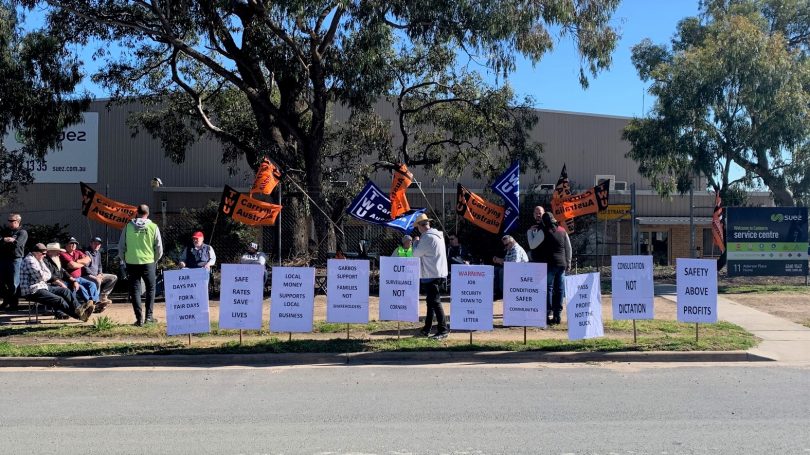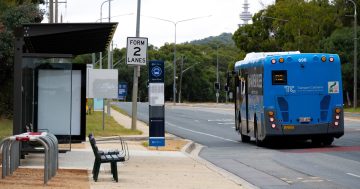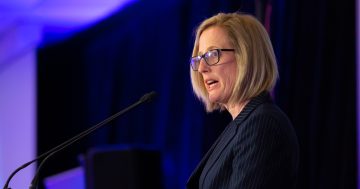
Suez garbage truck drivers have turned down Suez’s most recent pay rise offer. Photo: TWU NSW.
ACT garbage truck drivers voted this morning (25 November) to reject an 8.3 per cent pay rise over three years, standing firm on their push for a 4 per cent yearly pay rise over the next three years.
Suez met with the Transport Workers Union and the Fair Work Commission on Monday (23 November) when Suez raised its offer from 8 per cent over three years.
It is the sixth offer the garbage collection company has presented to its drivers. Drivers received a 3.4 per cent increase in April this year.
The rejection of the most recent offer means industrial action is back on the table for drivers, but will not be able to take place until Thursday next week at the earliest as notice must be given.
Industrial action planned for this Friday (27 November) has been postponed.
TWU ACT branch secretary Klaus Pinkas said the union would keep negotiating to ensure that essential workers were well paid. A revised offer is expected from Suez in the next few days, he said.
“This is not some local struggling business. It is a huge multinational doing very well out of their contract with the ACT.
“In response to claims that Garbos are being greedy, the TWU believe that it is a good idea that critical workers are well paid for the job they do.
“It is generally acknowledged that low wage growth is a problem in both the national and ACT economies.”
Suez’s NSW General Manager of Collections and Logistics Paul Haslam says the business still has to remain economically viable to survive during a COVID-19 recession.
Mr Haslam says that of the 2,500 employees the company has in Australia, some staff have not had an increase this year, while those on hourly rates have seen increases between 1 and 3 per cent.
“All divisions across Suez have taken action to adjust to the vastly altered economic landscape in which we are all living in order to ensure the longer-term economic sustainability of our business,” the company said previously.
“These steps include no CPI salary increase for salaried employees in 2020 and alternative working arrangements, including a reduction in hours for many employees.
“Like many other Australian executives, our senior leadership team took a 25 per cent pay reduction for three months at the height of the pandemic.”





















